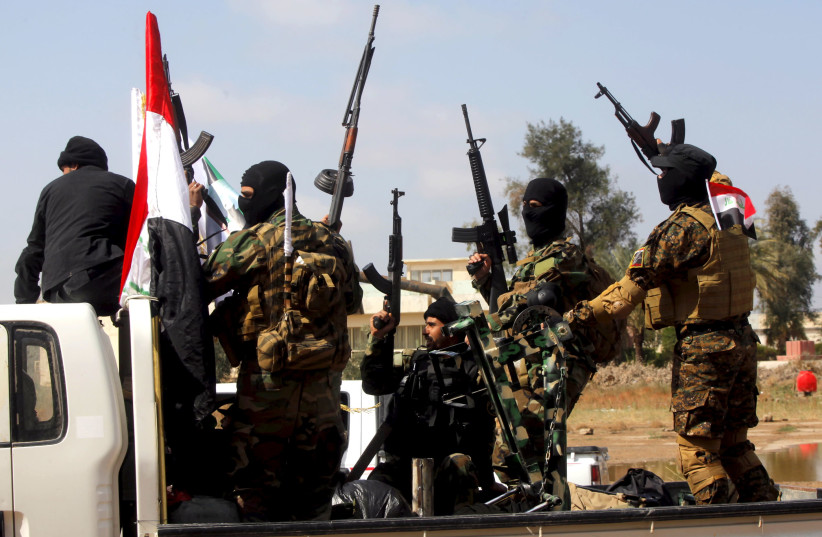Iraq is at another crossroads this year. It is searching for another government. Elections in 2018 saw Muqtada al-Sadr, a powerful populist and cleric, get the most seats. The supposed front-runner, Haider Abadi, who was backed by the US, failed to perform well. Nouri al-Maliki, another former Iraqi strongman who was pro-Iran and had been backed by the US, also failed to gain many seats.
Iraq has slouched from crisis to crisis since 2018. Pro-Iranian militias linked to the Fatah Alliance in parliament, a faction led by Hadi al-Amiri, have terrorized Iraqis, targeted Americans and created a state within a state. This was mostly the fault of Maliki and Abadi, who fueled sectarianism. Maliki fueled it like a man pouring gas on a fire, while Abadi cemented the pro-Iranian militias into an official paramilitary force.
He basically saddled Iraq with its own version of Iran’s IRGC. Qasem Soleimani had free rein in Iraq, and men like Abu Mahdi Al-Muhandis set up their militia camps to run weapons to Syria and Lebanon from Iran. A Kurdish independence reference in 2017 saw many Kurds seeking freedom from the albatross of failure that is Iraq, yet they were punished by Abadi – with tacit American support. Former US president Donald Trump disliked the Kurds and backed the pro-Iranian government of Baghdad to erode their rights.
Iraq has a way of frustrating foreign believers. Protests in 2019 and 2020 led to the rise of Mustafa al-Kadhimi, who has tried to balance the pro-Iran militias with attempts to broker deals between Saudi Arabia and Iran, and keep the Iraqi state afloat.
Meanwhile in the Kurdish region, the PUK, the second largest Kurdish party, has been riven by internal problems. This leaves the KDP as the main Kurdish power-broker. In Baghdad, However, the presidency is held by a Kurd, and the PUK will back Barham Salih, a former university president, for another term.

So now the question is whether Sadr can do anything that he promises. We’ve seen the Sadr circus before. He had 54 seats in 2018 and now has 73. The pro-Iran parties lost badly in the election and complained that the results were fraudulent. Back in 2016, Sadr unleashed a mob of protesters on the Green Zone to storm parliament. Since then, he has been riding high. He positions himself as a nationalist who is untethered from Iran and willing to make deals with Riyadh and others. Once a firebrand against the Americans, he seems willing to deal with them as well.
But he’s unpredictable and often has what appear to be bouts of depression, disappearing at key moments, going to Qom in Iran or throwing away his hand at the last moment. He’s a strange man, unable to really grasp the power that is in his hands. He senses that Iraq needs a strongman, but he doesn’t want to be that man. He is willing to work with Kurds, Sunnis and others.
So now Iraq must wait to see which Sadr they will get this year. Reports at Rudaw in the Kurdistan region say he wants to form a nationalist government.
“We are proceeding with the formation of a national majority government, and our door is open to some of those we still think well of,” Sadr said in a tweet. He has appeared to stand up to the pro-Iran militias who have threatened Kurds and others.
Kata’ib Hezbollah’s Abu Ali al-Askari said, “We have repeatedly warned of the threat of expropriating the rights of the majority,” Rudaw reports. The pro-Iran group says, “Difficult days will pass in Iraq where everyone will lose,” in a statement published on Askari’s Telegram channel. These militias have murdered critics in the past, like Lokman Slim in Lebanon and Hisham al-Hashimi, whom they killed in July 2020.
Iraq must now hold its breath to see if the Sadr camp can create a functioning government.
“There will be no return to sectarian violence and warfare,” Sadr said. “The next government will be one of law and there will be no place for any violation from anyone, whatever it is.”
